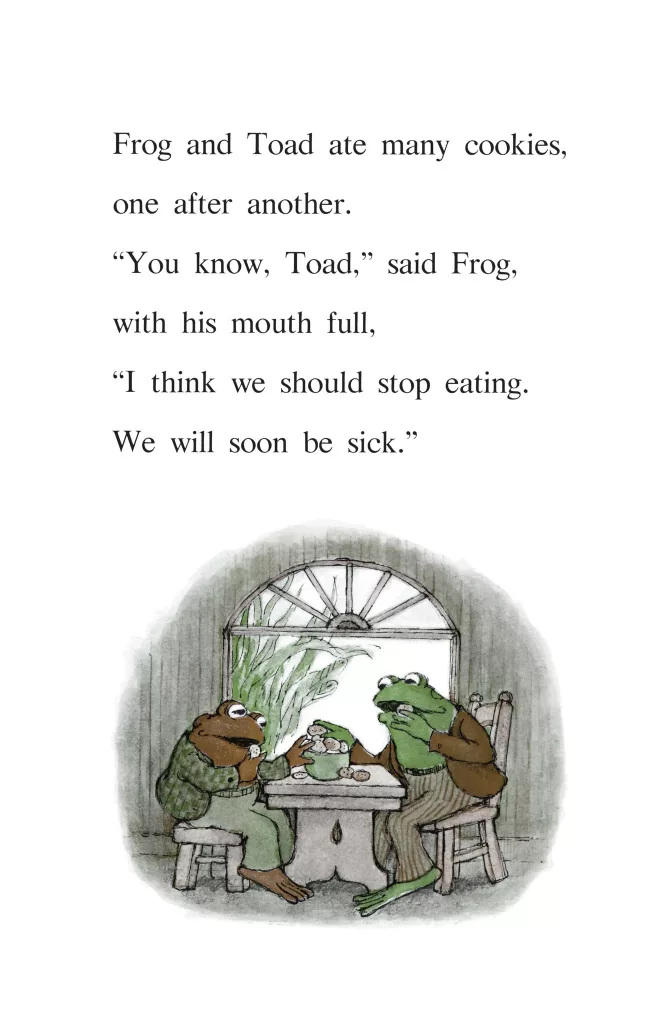****Click here of another video I made regarding our words and why they are so important.
Seeking Wisdom in Difficult Days
A Study of James
The Powerful Little Troublemaker
James 3:1-12[1]
Introduction
In today’s society there is a lot of attention that is getting oriented toward speech. University professors, medical professionals, social workers, and many other professions, are having to be incredibly cautious in their identifying people according to their preferred gender orientation. (see graphic) There are micro aggressions, hate speech, and safe spaces where students feel the need to not be offended by conflicting ideas and opinions. So, what we as Christians say, and how we say it, is as important now as it has ever been.
James is writing to the church that has experienced persecution and has been forced to scatter into different cities away from Jerusalem. In earlier sections of James, he deals with things that were being corrosive to the local church and keeping it from being what God intends for it to be (not understanding trials and tribulations, worthless religion, partiality, a dead faith). Now James turns his attention to yet another topic that if not dealt with can cause much damage – our words.
In the previous verses, James gives “three examples of misused speech: (a) words that honor the rich and dishonor the poor, (2:3) (b) greeting a poor brother or sister without providing assistance (2:16), (c) claiming to have faith without works to show for it (2:18).[2] Those examples dealt with “empty words.”
In the first chapters of James he discusses that talk is cheap if that is all you have with regard to one’s faith – words or worthless is they are not backed by action. In chapter 3, he doesn’t want us think that we can then just say anything, our words actually do have a great impact on others.[3]
James gave us six pictures of the tongue: the bit, the rudder, fire, a poisonous animal, a fountain, and a fig tree. You can the put these six into three helpful categories.[4]
Prayer
Power to Direct: The Bit and Rudder (vv. 1-4)[5]
Not many of you should become teachers, my brothers, for you know that we who teach will be judged with greater strictness. 2 For we all stumble in many ways. And if anyone does not stumble in what he says, he is a perfect man, able also to bridle his whole body. 3 If we put bits into the mouths of horses so that they obey us, we guide their whole bodies as well. 4 Look at the ships also: though they are so large and are driven by strong winds, they are guided by a very small rudder wherever the will of the pilot directs.
James mentions the tongue in every chapter of James[6], and in chapter three he expands the idea of word and their impact. Both the bit for the horse and the rudder for the ship are small things that control much larger things.
James has dealt with several issues that were cropping up in the diaspera church, and it now seems that it these teachers and their false teachings that were at the root of the problem. When we looked at James 2:1-12 and how Christians should not show partiality in the church, we looked at how in Roman society social movement was just about impossible.
So people would give toward building projects, public baths, art works, etc. But if you couldn’t do those things, then you could gain prestige and power by teaching in the church. So there were individuals who would assume to upon themselves to be teachers and would teach heretical and false teachings in an effort to have influence.
There was also a build in high respect in Judaism for their rabbinical teachers. So, there “seems to be some Christians who were seizing the opportunity to be called teacher (rabbi) and rushing into the office without a solemn consideration of the responsibilities.”[7] The Christian should not be so eager to teach that they overlook the responsibility.
1-4 begins with a rebuke of a teacher “Not many of you should become teachers” who should not be teaching, either because he is not qualified, or is saying things (teaching things) that are false. Such teachers do irreparable harm to those that trust them and hold to their teachings. And there will be a judgment of their teaching, “for you know that we who teach will be judged with greater strictness.”
If you believe that God has called you to teach others you must read Ezekiel 3:17-19 “Son of man, I have made you a watchman for the house of Israel. Whenever you hear a word from my mouth, you shall give them warning from me. 18 If I say to the wicked, ‘You shall surely die,’ and you give him no warning, nor speak to warn the wicked from his wicked way, in order to save his life, that wicked person shall die for4 his iniquity, but his blood I will require at your hand. 19 But if you warn the wicked, and he does not turn from his wickedness, or from his wicked way, he shall die for his iniquity, but you will have delivered your soul.”
There is a constant temptation on the part of the preacher/teacher to not teach all that the Bible says, or leave out certain parts because of the potential hurt feelings, or conflict that it may cause – but the watchman must keep watch and call out sin when he sees it.
In his farewell speech to the Ephesian church, Paul says, “Therefore I testify to you this day that I am innocent of the blood of all, 27 for I did not shrink from declaring to you the whole counsel of God.” Declaring the whole counsel of God is what made Paul “innocent” of anyone’s choice to turn away from the truth. Paul had fulfilled his ministry among the Ephesians.
There is also the potential for those with opportunities to speak and influence others to be wrong (they mean well, but they are simply wrong in what they are teaching). James says, “For we all stumble in many ways.” Moses lost his temper and struck the rock (Numbers 20), Peter boasted that he would never leave Jesus’ side “Peter answered him [Jesus], “Though they all fall away because of you, I will never fall away.” (Matthew 26:33). “James is saying that the most difficult task a Christian faces is the mastery of his own speech.”[8]
James gives the example of a rudder (being small) directs the ship – so too a teacher can lead a large group in a good or bad direction.[9]
Matthew 18:6 “but whoever causes one of these little ones who believe in me to sin, it would be better for him to have a great millstone fastened around his neck and to be drowned in the depth of the sea.”
Also, a false teacher has the potential to wreck years and years of good teaching with just a small amount of false teaching. Therefore, the reason for James to write this letter to the churches. “James’ point is that we should not underestimate the powerful potential of leadership positions nor undervalue the damage that can be done through careless or mean-spirited speech.”[10]
On the other side of this issue are those that hear and should not just accept everything told to them, even by those they trust and love – we must keep a discerning spirit about us. Acts 17:11 “Now these Jews were more noble than those in Thessalonica; they received the word with all eagerness, examining the Scriptures daily to see if these things were so.” The Bereans were eager to receive the Word of God, but they also examined it against Scripture.
When James says “And if anyone does not stumble in what he says, he is a perfect man” The use of the word “perfect” is not used the same way we use the word perfect as in without error or mistake – James means “mature” “or full grown.”[11] So the spiritual barometer of a Christian (how are you doing in your walk with the Lord) is your ability to control what you say, and understand its’ impact upon other people.
“If we put bits into the mouths of horses so that they obey us, we guide their whole bodies as well” The purpose of a bit in the horse’s mouth is so that you can control the animal. Imagine a 1,500 lb. wild horse running through the church on a Sunday morning, or a church meeting, or Sunday School class – kicking, jumping, running wild – it would be disastrous. The same is true for the person who can’t control their tongue, everywhere they go there will be destruction.
“Look at the ships also: though they are so large and are driven by strong winds, they are guided by a very small rudder wherever the will of the pilot directs” The rudder determines where the ship goes. If the pilot of the ship doesn’t know what he’s doing, he can steer that ship into other ships, rocks, sandbars, underwater reefs, or just take a boat load of people completely off course and in the wrong direction.
Power to Destroy: The Fire and The Animal (vv. 5-8)
5 So also the tongue is a small member, yet it boasts of great things. How great a forest is set ablaze by such a small fire! 6 And the tongue is a fire, a world of unrighteousness. The tongue is set among our members, staining the whole body, setting on fire the entire course of life, and set on fire by hell. 7 For every kind of beast and bird, of reptile and sea creature, can be tamed and has been tamed by mankind, 8 but no human being can tame the tongue. It is a restless evil, full of deadly poison.
Both fire and the poisonous animal are small things (like the tongue) that can bring destruction to the things it touches and spread to continue to destroy things much larger than itself.
Smokey the Bear warms campers to fully put out your campfires because just a small spark or ember can ignite an entire forest and destroy vast amounts of property. In the ancient world (before the days of home fire extinguishers and fire departments) fire was something everyone feared.
***wild fires in CA causing millions of dollars worth of damage and loss of life, due to a gender reveal explosive.

Strauss says, “The deadly drug does not need to be taken in large doses – a drop or two will suffice; and the tongue does not need to distill long speeches, it has but to drop a word, and the mischief is afoot. Thus has a peace been ruined, thus has a reputation been blackened, thus has a friendship been bittered, thus has a mind been poisoned, thus has a life been blasted.”[12]
In the example for the rudder, the pilot was in control. In the example of the bit, the rider was in control. In the example of the tongue of fire – “set among our members, staining the whole body, setting on fire the entire course of life, and set on fire by hell” “A spark can ignite a forest, but the tongue is so powerful it can set all humanity ablaze.”[13] Words move people to action.
When a person speaks (not just verbal, e-mails, texts, letters, cards, social-media posts, etc.) in a destructive way, it hurts the members and affects the entire church, and ultimately is guided by hell itself.[14]
“For every kind of beast and bird, of reptile and sea creature” In verse 7 James gives the four major categories of animals during creation in Genesis (Genesis 1:20-23). God created man to have dominion over, control over, creation, and every kind of animal has been “tamed.” “The image James uses here is a of a barely and inadequately caged beast, which breaks forth with irrational destructive power.”[15]
A poisonous viper that breaks loose from its’ cage and is going around striking people with poison. You then catch it, put it in its’ cage, but it keeps escaping again and again. You can keep the mighty elephant caged, but not the tongue.
Power to Delight: The Fountain and the Tree (vv. 9-12)
9 With it we bless our Lord and Father, and with it we curse people who are made in the likeness of God. 10 From the same mouth come blessing and cursing. My brothers, these things ought not to be so. 11 Does a spring pour forth from the same opening both fresh and salt water?[16] 12 Can a fig tree, my brothers, bear olives, or a grapevine produce figs? Neither can a salt pond yield fresh water.
Both the water fountain and the fruitful tree can bring delight, happiness, a blessing to those that encounter them.
Earlier in James he discusses “the double-minded” person (James 1:7) “For that person must not suppose that he will receive anything [asking God for wisdom] from the Lord; 8 he is a double-minded man, unstable in all his ways.” It is the man’s trying to live in the world with its’ values, and live a life that honors God leads you to instability.
When in one part of the day you are worshipping and blessing God then later in the day we are cursing someone (who is made in the image of God) then we are being double-minded, which leads us to be unstable. He uses a spring that produces one kind of water, tree producing fruit of its’ kind, and a salt lake – all produce according to their nature.
So if we are the Lord’s then that love for Him in our core is what gets spilt out when life bumps us. If you are a worshipper of God and sing praises, then cursing and evil words should not come out of your mouth, “it should not be.”
The use of the word curse is not to cuss at someone as in profanity – it “refers to the Jewish custom in the first century of expressing the hope that evil and tragedy would come to a person.” A common Jewish curse was “May your children become idolators and your wife be unfaithful.”[17]
So you praise God in the morning, saying you want to follow His plan for your life – then in the afternoon you are desiring your neighbor’s house to burn to the ground and his family to be destroyed – which is ignoring the plan of God for His creation, especially mankind.
Conclusion
There is a common children’s phrase, “sticks and stones may break my bones, but words will never hurt me.” This is just not biblically true.
The affects of verbal abuse to the adolescent brain.[18]
****click here of another video I made regarding our words and why they are so important.
______________________________
[1] Beth Day, 1855 “Three Gates of Gold.” “. . . Make it pass, Before you speak, three gates of gold: These narrow gates. First, “Is it true?” Then, “Is it needful?” In your mind Give truthful answer. And the next Is last and narrowest, “Is it kind?” And if to reach your lips at last It passes through these gateways three, Then you may tell the tale, nor fear What the result of speech may be. (Buttrick, 49).
[2] Pheme Perkins, Interpretation, First and Second Peter, James, and Jude (Louisville, Kentucky; John Knox Press, 1995) 115.
[3] Lehman Strauss, James, Your Brother (Neptune, New Jersey; Loizeaux Brothers, 1980) 120.
[4] Warren Wiersbe, Be Mature, Growing Up In Christ (Colorado Springs, Colorado; David C. Cook Publishing, 1978) 99.
[5] The outline is from Warren Wiersbe, Be Mature.
[6] James 1:19, 26; 2:12; 4:11. 5:12 – Strauss, 120.
[7] Clifton J. Allen, The Broadman Bible Commentary, Volume 12 (Nashville, Tennessee; Broadman Press, 1972) 121.
[8] Allen, 121.
[9] David P. Nystrom, The NIV Application Commentary, James (Grand Rapids, Michigan; Zondervan Publishing House, 1997) 176.
[10] Nystrom, 177.
[11] Strauss, 125.
[12] Ibid, 136.
[13] Allen, 123.
[14] “I lost a very little word, only the other day; It was a very naughty word I had not meant to say. But, then, it was not really lost – when from my lips it flew, My little brother picked it up, and now he says it too!” (Strauss, 136.)
[15] Nystrom, 180.
[16] Mediterranean wisdom, a fonte puro pura defluit aqua (“from a pure spring flows pure water.”) Nystron, 182.
[17] Allen, 124.



